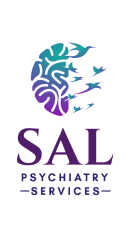Panic Therapy

Two million teens and 10 million adults in the United States have attention deficit hyperactivity disorder (ADHD). And 60% of American kids who have ADHD carry it into adulthood. However, millions of adults went undiagnosed because many professionals saw ADHD as a childhood disease you grew out of, which isn’t the case. Salisu Aikoye, MD, and the team at Sal Psychiatry Services in Norwalk, California, can help identify and manage ADHD symptoms in adults. If you’re concerned about your condition, call the office today or schedule an appointment using the online booking tool. Telehealth services are also available.
What are the symptoms of ADHD?
Symptoms of ADHD in adults change only slightly from how they appear in children. Some of the most common symptoms include:
If you’re experiencing many of the signs on this list but haven’t had an ADHD diagnosis, or if you have ADHD and feel like your symptoms are getting worse, make an appointment with Dr. Aikoye and the team at Sal Psychiatry Services so they can run an assessment and develop a treatment plan for you.
What are the symptoms of ADHD?
There’s no definitive answer as to what causes ADHD, but medical professionals are looking into possible links between ADHD and a series of causes, including pesticides, genetics, brain injury, premature birth and low birth weight, alcohol or tobacco use during pregnancy, and exposure to environmental hazards during pregnancy or infancy.
Males are more likely to be diagnosed with ADHD than females. It’s also easier to spot in males because their symptoms are more consistent with those typically associated with ADHD. Females with ADHD tend to be less boisterous and more forgetful and disorganized.

What are the symptoms of ADHD?
You can manage ADHD, but there’s no cure. There are two courses of treatment – medicated and non-medicated – that the team at Sal Psychiatry Services may use individually or simultaneously.
Stimulants frequently help improve focus and attention, but these aren’t suitable for everyone, especially if you have developed anxiety due to your ADHD. Non-medicated treatment includes behavioral therapy and psychological coaching.
Your provider may also recommend that you look at your diet and lifestyle, as cutting out refined sugars and having less screen time may help improve your symptoms.
With an appropriate treatment plan, you can successfully manage ADHD and take control of your life. If you think you may have ADHD based on your symptoms, the team at Sal Psychiatry Services can help. They can guide you through your treatment options and support you through all aspects of ADHD management. To schedule an appointment, call the office or book online today.

